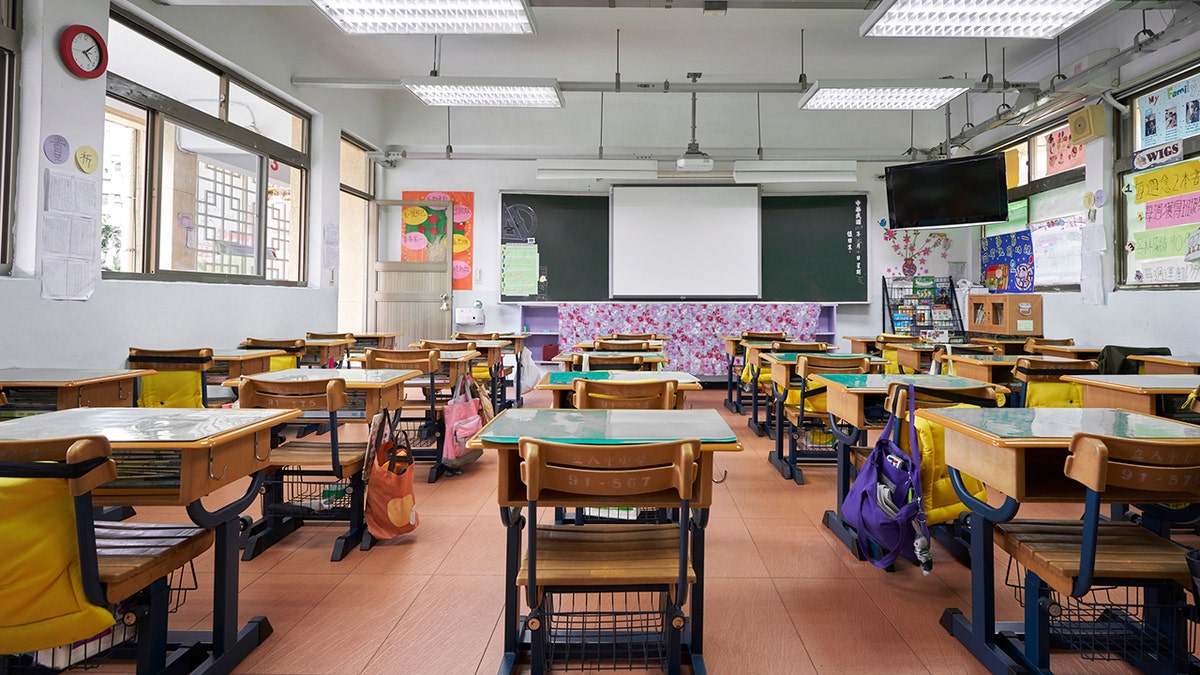Fox News Flash top headlines for April 4
Fox News Flash top headlines are here. Check out what's clicking on Foxnews.com.
The U.K. government published a report Monday assessing how COVID-19 lockdown measures introduced at the onset of the pandemic continue to impact kids’ writing and social skills, specifically for younger students, well after children have been reintegrated back into classrooms following prolonged periods of online learning.
Ofsted (Office for Standards in Education, Children's Services and Skills), a U.K. government department, released its second series of reports Monday following its first set published in December.
Despite recognizing "strong signs of recovery" made across the education sector to help students recover knowledge and skills missed at the onset of the pandemic, the department admitted challenges remain which could have "longer-term consequences," specifically for younger children.
Monday’s report on "early years" education found the pandemic has continued to affect young children’s communication and language development, with many providers noticing delays in speech and language. Other providers said babies have struggled to respond to basic facial expressions, which may be due to reduced social interaction during the pandemic.
Ofsted Chief Inspector, Amanda Spielman, admitted that "it’s clear that the pandemic has created some lingering challenges," adding that "I’m particularly worried about younger children’s development, which, if left unaddressed, could potentially cause problems for primary schools down the line."

Row of empty desks in front of whiteboard. Interior of classroom in school. (iStock)
The negative impact on children’s personal, social and emotional development has also continued, with many lacking confidence in group activities, the report said.
The government agency assessed that children’s social and friendship-building skills have been affected.
Some providers reported that toddlers and pre-schoolers needed more support with sharing and turn-taking, according to the report. To address this, staff were providing as many opportunities as possible for children to mix with others and build confidence in social situations, Ofsted said.
But the impact of lockdown measures also had lingering effects on children’s physical development, including delays in babies learning to crawl and walk. Ofsted said some providers reported that children had regressed in their independence and self-care skills. To address the issue, several have increased the amount of time children spend on physical activities, to develop gross motor skills.
CLICK HERE TO GET THE FOX NEWS APP
An increasing number of providers were concerned that, compared with before the pandemic, fewer children have learned to use the toilet independently, according to the report. This means that more children may not be ready for school by age 4. Providers were also concerned about obesity and dental health, so have focused on providing well-balanced meals and increased time for physical activity.
The so-called "great recession" also had some overlap as, according to the report, many providers reported difficulties retaining high-quality staff since the start of the pandemic, leaving some short of skilled practitioners, which has affected the quality of teaching and catch-up strategies. Some providers are concerned about their long-term sustainability given fluctuations in the numbers of children on roll.




















